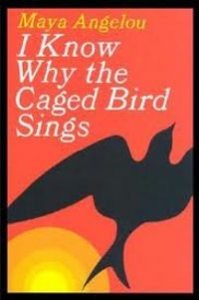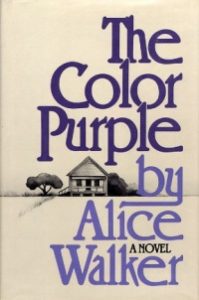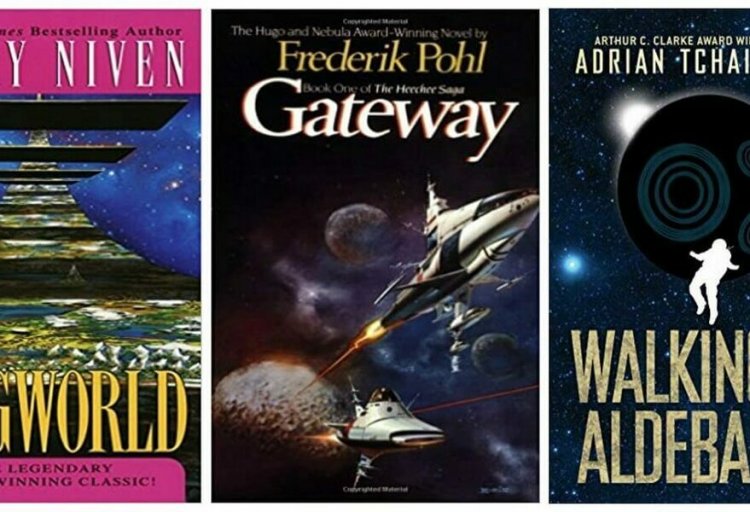August 9 is Book Lover’s Day, so there’s no better time to talk about my passion project – that is, to read every single book on the official “1,001 Books to Read Before You Die” list. I’m not going to lie, it’s a pretty daunting project. Along the way, however, I’ve read a number of classics. Some were dry, some were a little silly. Others were truly excellent. Most people, in order to consider themselves “well-read”, feel like they need to read the classics. But, where do you start? How do you know which ones are worth reading? (Well, they’re all probably worth reading, but some are definitely more fun than others.) How will you know if you’d even like it? Allow me to help!
 Beloved, by Toni Morrison
Beloved, by Toni Morrison
Sethe and her 18-year old daughter, Denver, are trying to rebuild their lives after Sethe’s escape from Sweet Home plantation when Denver was in utero. Because their house is haunted by the ghost of Sethe’s dead infant daughter, Beloved, and combined with Sethe’s general paranoia, the two are friendless and rarely leave their home. As Sethe becomes more and more unhinged, Denver must overcome her fears to keep food on the table.
Bother if: I liked, if not loved, this novel. It’s necessarily intense due to the subject matter, and more than a little heartbreaking. That said, the writing is excellent, and the story is intriguing, even I felt like it was fairly easy to put down. It is beautifully written, and unlike anything I had ever read before.
Don’t Bother if: There are graphic depictions of the way slaves were treated in the south, which may be emotionally troublesome for more sensitive readers. There is also sex, rape, child abuse, murder, and of course the supernatural element of being quite literally haunted by one’s past. It’s wonderfully done, and one of the finer commentaries on the human aftermath of the slave trade that I have ever read, but it is by no means lighthearted.
Full Review: Beloved
 A Confederacy of Dunces, by John Kennedy Toole
A Confederacy of Dunces, by John Kennedy Toole
Ignatius is a medievalist who is more or less befuddled with the modern world, and wastes no opportunity to complain about it. When he is accosted by the police as he is waiting for his mother outside Woolworth’s, it triggers a chain of events where during the course of evading the police, he and his mother hide in a strip club in the French Quarter, and she gets drunk and has a car accident which is more or less Ignatius’ fault. She forces him to get a job to help pay for the damages; an endeavor to which Ignatius will be the first to tell you he is ill-suited.
Bother if: You’re a fan of absurdist comedy and ambitious language.
Don’t bother if: You’re not a fan of horrendous protagonists (Ignatius is often less than endearing, if hilarious), or if you don’t enjoy the point of view shifting between characters.
Full Review: A Confederacy of Dunces
 Lady Chatterley’s Lover, by D.H. Lawrence
Lady Chatterley’s Lover, by D.H. Lawrence
When Constance Reid marries Lord Clifford Chatterley, she has the somewhat dim view of sexual congress between men and women that the odd affair in college has afforded her. Indeed, she has never given herself over emotionally to a man before, and believes that the only reason that men talk to women is so that women will have sex with them, and the only reason women have sex with men is to entice them into continuing to provide them with lively conversation (she finds the conversation of women boring.)
Bother if: I really enjoyed this one. It’s a relatively short read, and I laughed out loud in places. I found the antiquated language particularly amusing – the novel refers to having an orgasm as having one’s “crisis”, for example. Lady Chatterley and the gamekeeper are endearing characters, and I liked them very much. Lady Chatterley discovers that one cannot live merely out of one’s head; one must also live with one’s body.
Don’t Bother if: I thought it was a wonderful story, but it certainly contains obscene language and sexually explicit sections. While it may not be as extreme today as it seemed in 1928, it’s certainly a little racy. The social themes may also be off-putting to certain readers – it is suggested that men and women are more useful to one another in marriage if it is treated more like a business arrangement than a love affair, and as long as the business arrangement is respected, one can seek love elsewhere. Indeed, the general sentiment seems to be that since love is an illusion and infatuation is fleeting, that one should marry sensibly and take their pleasures of the flesh where they can find them.
Full Review: Lady Chatterley’s Lover
 I Know Why the Caged Bird Sings, by Maya Angelou
I Know Why the Caged Bird Sings, by Maya Angelou
As part one of six of a series of autobiographical novels written by Maya Angelou, I Know Why the Caged Bird Sings moves swiftly through the author’s life from age three through age seventeen, from Arkansas to St. Louis to California to Mexico. Marguerite “Maya” and her brother are sent as children to live with their grandmother, “Momma” in Arkansas. Haunted by their parents’ abandonment, the two struggle with racism in the south.
Bother if: This is not only a tremendously entertaining story, but Angelou’s writing lends a poetry to her life that makes the terrible things somehow okay, and the good things even better. Caged Bird is stunning portrait of a young black girl’s place in not only the south, but the greater world beyond it, and is a very worthwhile read.
Don’t Bother if: The novel necessarily focuses on themes of racism, violence, child rape, discrimination, teen pregnancy, and other upsetting subjects. I thought it was a wonderful testament to strength in the face of adversity and how one can overcome hardship with effort. Certain parts, however, were pretty gut-wrenching.
Full Review: I Know Why the Caged Bird Sings
 Love in the Time of Cholera, by Gabriel Garcia Marquez, translated by Alfred A. Knopf
Love in the Time of Cholera, by Gabriel Garcia Marquez, translated by Alfred A. Knopf
The story takes place in the sultry Caribbean, where well-to-do young Fermina Daza is being wooed by Florentino Ariza, a somewhat less well-to-do (if passionate) young man. She dismisses his infatuation as frivolous and marries Dr. Juvenal Urbino, a kind man who can provide her with security and the kind of “serious” life she feels is appropriate for a woman of her station. Crushed, Florentino vows never to marry another woman as long as he lives. When Dr. Urbino dies, Florentino re-enters his beloved’s life.
Bother if: It’s a beautiful, poetic story about, some say, the enduring power of true love. It has also been argued that while on the surface, the novel regards Florentino’s devotion to Fermina Daza as true love, the novel is actually about love as a sickness – that true love does not exist but is essentially an affliction. Either way, the story is powerfully done and the imagery is stunning. I choose to believe that the story was about true love, and I may have teared up a little towards the end when the little old couple is standing on a boat, and they silently reach for one another’s hands, and it is the first time they have touched since they were young.
Don’t Bother if: The translation isn’t the most accessible one I’ve ever come across. This is a little dry in places, and by no means a quick and easy read. Perhaps the Spanish original is a little more smooth. Also, Florentino is painted as a romantic, but he stalks Fermina Daza, sleeps with prostitutes, and rides the line between adoration and obsession. I liked it well enough, but unless you are given to seeing the beauty in the words themselves and losing yourself in the description, I can see where some people might think that the story was a little boring or dry.
Full Review: Love in the Time of Cholera
 The Graduate, by Charles Webb
The Graduate, by Charles Webb
When brilliant 20-year old Benjamin Braddock returns home after graduating college, his parents throw him a graduation party and invite all of their friends. Everyone is thrilled about his numerous academic and athletic achievements, and badgers him to tell them what his plans for the future are. Benjamin, however, is disenchanted with nearly everything about his life, and is made extremely uncomfortable by their attention. Enter Mrs. Robinson.
Bother if: This was a solidly good story and a fun, quick read. Benjamin and Mrs. Robinson are great characters, and it’s a classic. If you’ve seen the movie, I had trouble picturing the characters as anyone other than Dustin Hoffman and Anne Bancroft. It’s less about a young man having an affair with an older woman than it is about a young man trying to figure himself out. I imagine that most people can identify with Benjamin’s feelings about society and his place (or lack of place) in it as they venture into the world for the first time from school. Not having the slightest idea what one wants to do with their life is a pretty standard sentiment, I think.
Don’t Bother if: It’s a period piece and reflects the upper-middle-class society of the early 1960’s. I was reminded of Mad Men (the television show) by most of the adults. The writing style is stilted in the same way that J.D. Salinger’s is (marked by intentionally slangy or choppy dialogue and narration), but I rather enjoy that style. There is a lot of casual drinking, smoking, and swearing (“Goddammit, Elaine!”) The sex, while implied, is never graphically detailed: ‘And then he climbed on top of her and began the affair.’ There is also, of course, Benjamin’s involvement with a married woman twice his age. I thought it was a worthwhile read, but if you have particular objections to any of the above, you may want to skip this one.
Full Review: The Graduate
 The Color Purple, by Alice Walker
The Color Purple, by Alice Walker
Young Celie begins by blindly following the vengeful God of her fathers, casts off her entire past in an effort to find who she is, and rebuilds her relationship with God to fit with who she has become. Her later relationship to God is more spiritual than religious “People spend all their time trying to please God. Us don’t realize that God trying always to please us too. I think God don’t like it when us walk by the color purple in a field and don’t notice it.” (paraphrased) A reference, of course, to the title.
Bother If: It’s certainly an engrossing, uplifting story. Celie is a strong female who works very hard to find out who she is, overcome her past, and rise above the societal limitations of her time. It is a definite modern classic, and provides an interesting glimpse at the American south during the depression era.
Don’t Bother If: You’re a grammar Nazi. Celie is illiterate and her grammar is accordingly poor. As the story is written by way of her letters, it is very distinctive in its use of her voice. Also, this is a pretty intense, heart-wrenching read. If one is particularly sensitive to themes of racial discrimination, incest, rape, domestic violence, lesbianism, female genitalia mutilation (African ritual), scarification, or any of the above, you might pass on this one. I think it’s definitely worth a read, and I didn’t feel that the descriptions of any of the above were terribly explicit, but the book hasn’t been repeatedly challenged/banned for nothing.
Full Review: The Color Purple
 Like Water for Chocolate, by Laura Esquivel
Like Water for Chocolate, by Laura Esquivel
Tita, as the youngest daughter, is bound to care for her mother until the day she dies, despite the fact that she is in love with Pedro. On one evening after a particularly sumptuous meal infused with Tita’s desire for Pedro, Tita’s eldest sister Gertrudis becomes overcome with an unquenchable lust and runs away with a Mexican Revolutionary, furiously making love with him on horseback as they ride away. Mama Elena is furious, but Tita begins to realize that if Gertrudis can defy Mama Elena, perhaps she can too.
Bother if: You’re a fan of romance, supernatural elements, fairy tales, or even if you are a foodie! The descriptions of the food she prepares are amazing. The characters are great, and you love Pedro and hate Mama Elena right along with Tita. I very much enjoyed it.
Don’t bother if: Even if you don’t read romance as a rule, this is a wonderful story and worth making an exception for. However, it is definitely a romance/young love thwarted story, and the thematic elements are of the “suspend your disbelief” variety. While it is not graphic by any means, the story also contains sex and mild violence.
Full Review: Like Water for Chocolate
 A Clockwork Orange, by Anthony Burgess
A Clockwork Orange, by Anthony Burgess
Alex is a horribly violent disenfranchised fifteen-year old. As the only bright member of his gang, he leads them on nightly binges of drugs, random violence, rape, theft, and other unsavory activities. This eventually culminates in Alex being arrested and subjected to the “Ludovico Treatment”; that is, a two-week course guaranteed to reprogram criminals not to commit further crimes by subjecting them to an overdose of stimuli. In short – showing them an overdose of violence so madly over the top as to make them physically ill, thereby removing the desire to inflict violence on others.
Bother if: You like dystopian novels, science fiction, social commentary, creative use of language.
Don’t bother if: You dislike books which invent their own languages, are particularly sensitive to extreme violence, or read books in order to be uplifted. This is not a tale for everyone.
Full Review: A Clockwork Orange
 Atlas Shrugged, by Ayn Rand
Atlas Shrugged, by Ayn Rand
The book is based on the not-too-farfetched premise that all of the producers of the world – producers in the sense that these are the hardworking, brilliant, movers and shakers and people of ideas in the world – get fed up with carrying the metaphorical burden of society. “What if Atlas shrugged?” A reference, of course, to refusing to carry the weight of the world on one’s shoulders. The producers band together and agree as one to stop producing, stop letting the idle and useless benefit from their ideas, and society be damned.
Bother if: If the premise intrigues you, you will probably enjoy the book. Like any “modern philosophy”, it presents an extremist solution to a common problem. As food for thought, I found it very interesting. Objectivism is a philosophy of justifiable selfishness, for lack of a better explanation.
Don’t Bother if: The most daunting thing about the book is its extreme length (nearly 1400 pages.) It’s not a light or quick read, and the language used is complex. It’s a definite undertaking, if interesting, but it’s also much longer than it needs to be, and quite dry and slow in places.
Full Review: Atlas Shrugged
For more of my reviews, all of which contain “bother if / don’t bother if” notations, reader’s polls, fun facts, and more, please visit Bucket List Book Reviews.







Leave a Reply